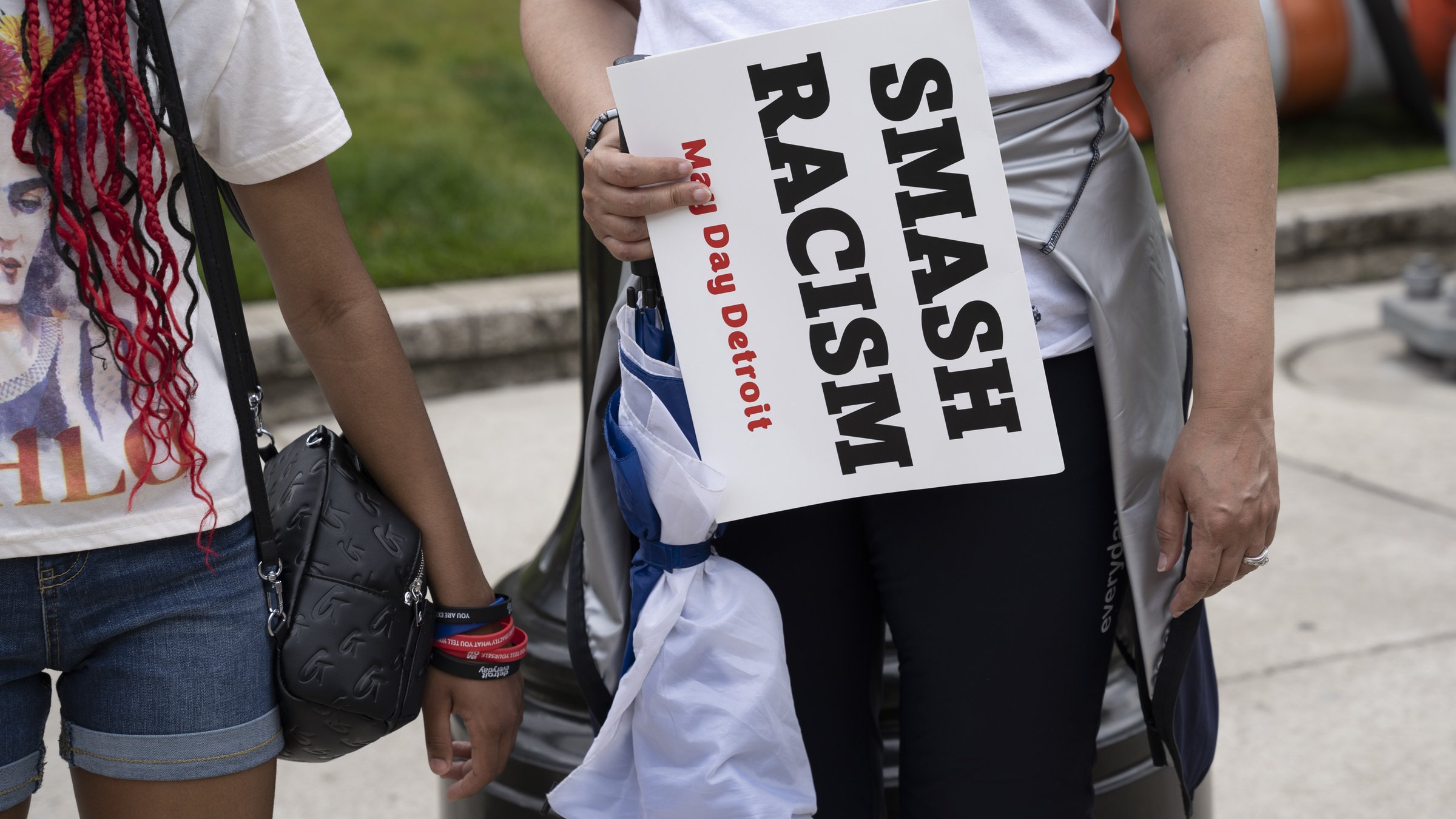Throughout four sessions at local parishes, participants are invited to a thoughtful conversation on race, shared understanding
DETROIT — Following the tragic death of George Floyd in 2020, a group of like-minded individuals from all regions of the Archdiocese of Detroit began meeting on a regular basis to discuss the issue of racism and how it could be addressed locally and in the Catholic Church.
The group, informally called “The Anti-Racism Coalition,” consisted of three dozen or so members representing a variety of parishes and local Catholic agencies and associations. The group began meeting with Detroit Auxiliary Bishop Gerard W. Battersby — who on March 19 was named bishop of La Crosse, Wis. — to discuss the possibility of a pastoral plan and framework around anti-racism in the archdiocese.
Don't miss another story
Did you know you can get Detroit Catholic's latest daily or weekly articles delivered to your inbox? It's easy and free to sign up.
Now, thanks to a financial grant provided by the Capuchin Franciscan Province of St. Joseph, the coalition has launched an ongoing discussion series, “Sacred Conversations on Race + ACTION.”
The first session of the four-part series took place on Saturday, Feb. 17, at Gesu Church in Detroit. The remaining three sessions are scheduled for Saturday, April 13, at St. Mary of the Hills Church in Rochester Hills, Saturday, May 18, at St. Blase Church in Sterling Heights, and Sunday, June 23, at St. Kateri Tekakwitha Church in Dearborn.
A key reason for the existence of the coalition and series is to create a shared understanding of the definition of different types of racism, said Steve Wasko, a member of the coalition.
“Some may react very negatively when they hear the term ‘institutional racism’ or ‘structural and personal racism’ and say, ‘that’s not something that exists in our Church,’" Wasko told Detroit Catholic. "We are not advocating that you have to agree or disagree that that’s the case, but it certainly would be helpful that we are at least able to understand what that is. This is not intended to be a book club or discussion group or anything like that, but really is meant to (spur) meaningful action that results from thoughtful conversations, all conducted in a sacred way.”
Although Sacred Conversations is intended to be a “journey” and participants are encouraged to attend all four sessions, the coalition encourages people to attend even if they missed the first session, which was attended by about 50 participants. The sessions are free, and lunch is provided.
Sacred Conversations is based on a program from the Gamaliel Network, an educational program with a mission to “empower ordinary people to effectively participate in the political, environmental, social and economic decisions affecting their lives” and that the conversation facilitators are from the Gamaliel Network.
Wasko, a professed secular Franciscan and the director of the St. Suzanne Cody Rouge Community Resource Center at his lifelong parish, St. Suzanne-Our Lady Gate of Heaven in Detroit, said the conversations are held in a "synodal" way.
Wasko said the coalition integrated the synodal format into the conversation sessions, modeling the format after Pope Francis' example during the global Synod on Synodality.
“I think the key part is a hope that we can have increased synodality in how we approach these issues,” Wasko said. “The program is not intended to convert anyone or convince them that ‘my point of view is right and theirs is somehow inferior,’ but to have the dialogue. The synodal dialogue is an excellent way to ensure that all input is reflected upon.”
Part of synodality is that not everyone will agree, Wasko said. The goal is not to take sides, but simply to create a shared understanding of issues that many people avoid discussing due to discomfort, he said.
During the first session at Gesu Parish, the discussion focused on the impact of race on each individual's life, Wasko said.
"We asked the question: ‘When did you become aware of the concept of race?’” Wasko said. “It might have been, for example, you were a young child at home, and your neighborhood was experiencing rapid changes in demographics. Maybe you encountered an unfortunate incident at school, or it may have been much later in life, even as a young adult.”
Sr. Grace Keane, OSF, director of parish social ministry and evangelical charity at St. Mary of the Hills, the host site for the second session, has been involved in the coalition for several years. Sr. Keane said there is still much work to be done, but conversations among neighbors should be at the heart of addressing racism.
“The heart of it might be our neighbors — the people that we have an opportunity to engage with. That’s important work,” Sr. Keane told Detroit Catholic. “You need to be (part of the conversation), and you need to invite your neighbor.
"Giving up a few Saturdays to participate in these discussions is worth the investment,” Sr. Keane added. “If we claim to be the body of Christ, should we not be about this work?”
Copy Permalink
Black Catholic ministry












